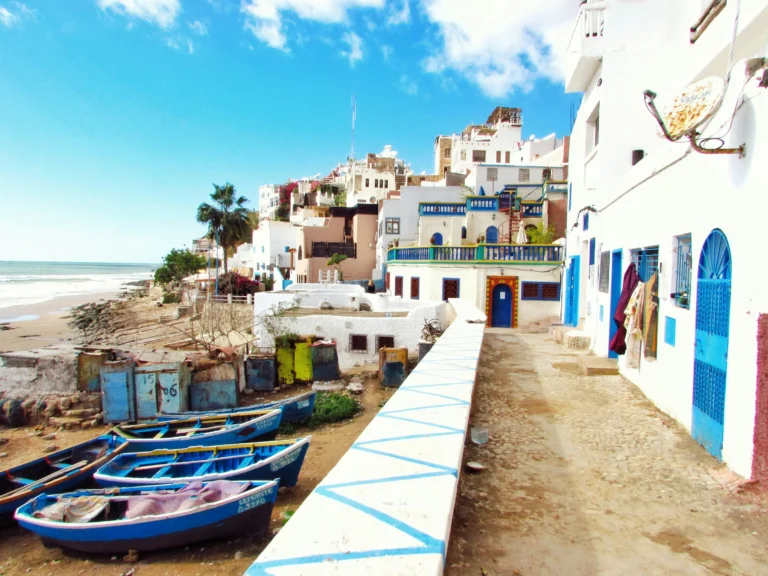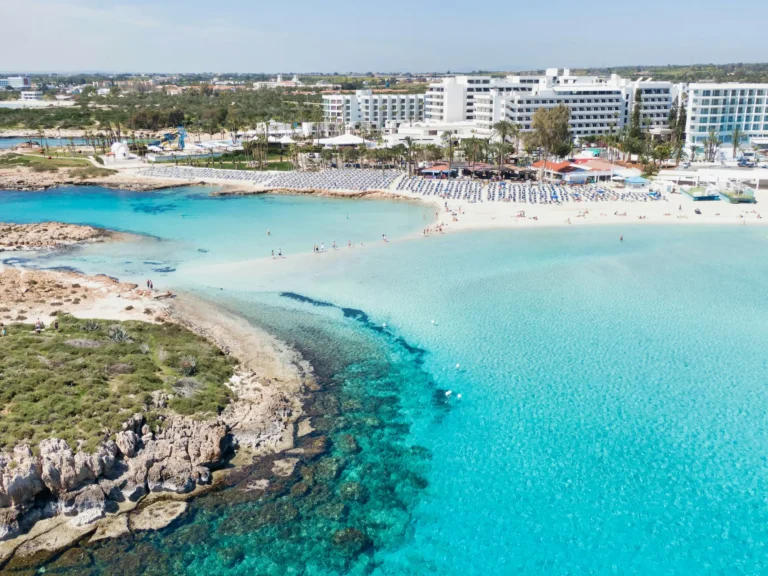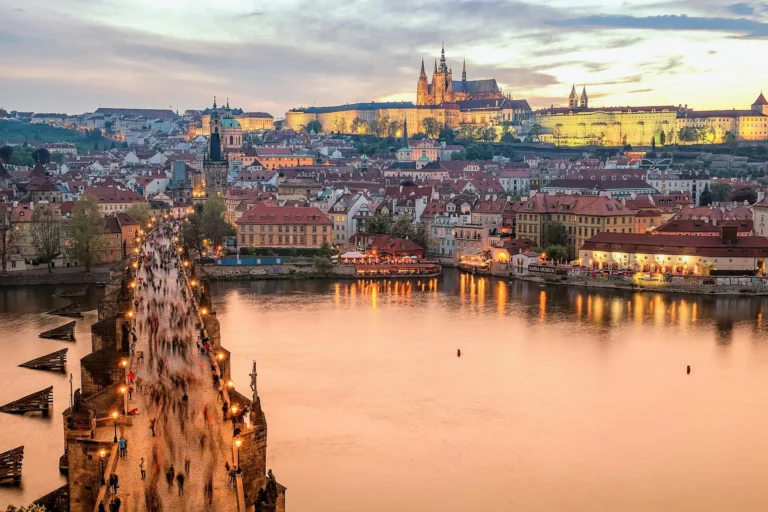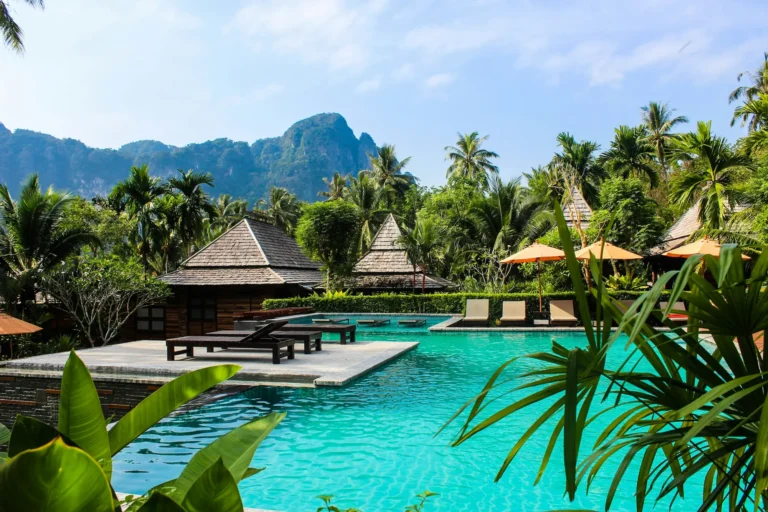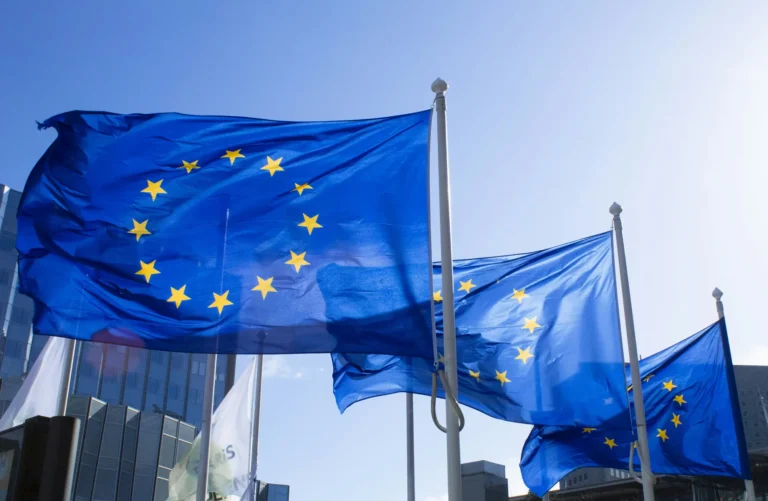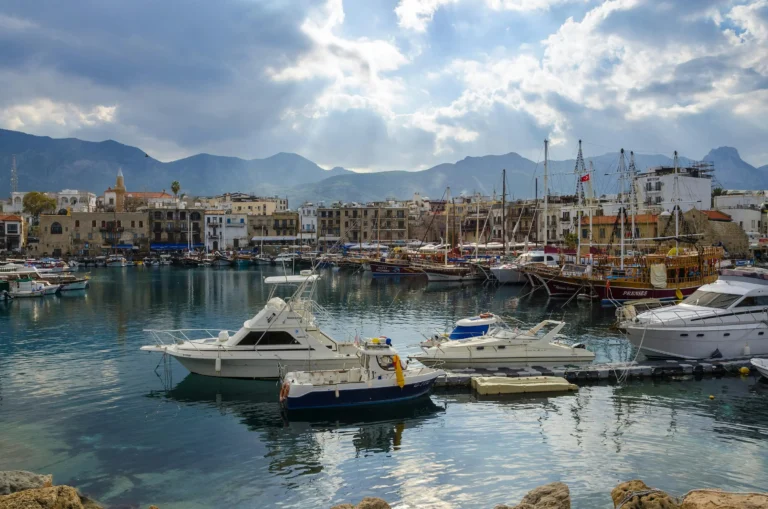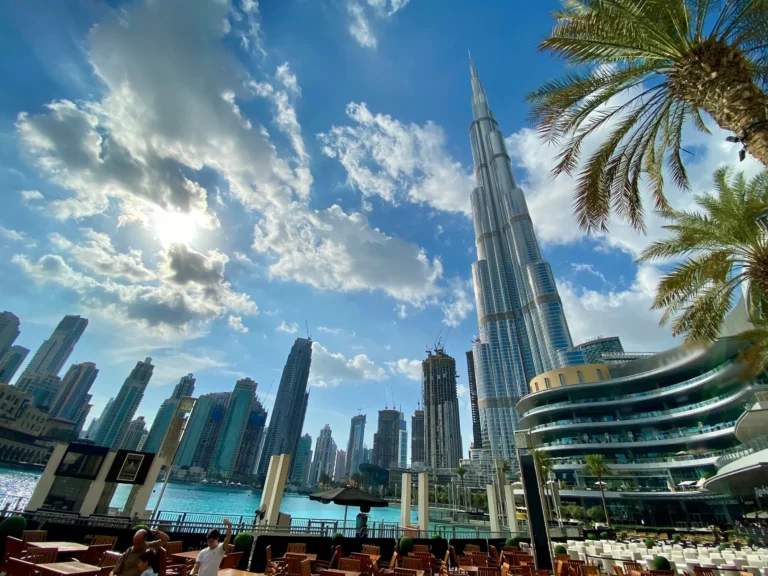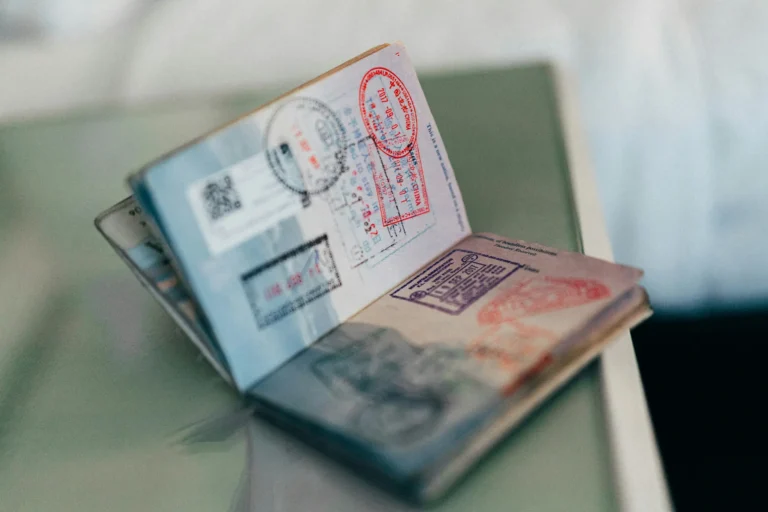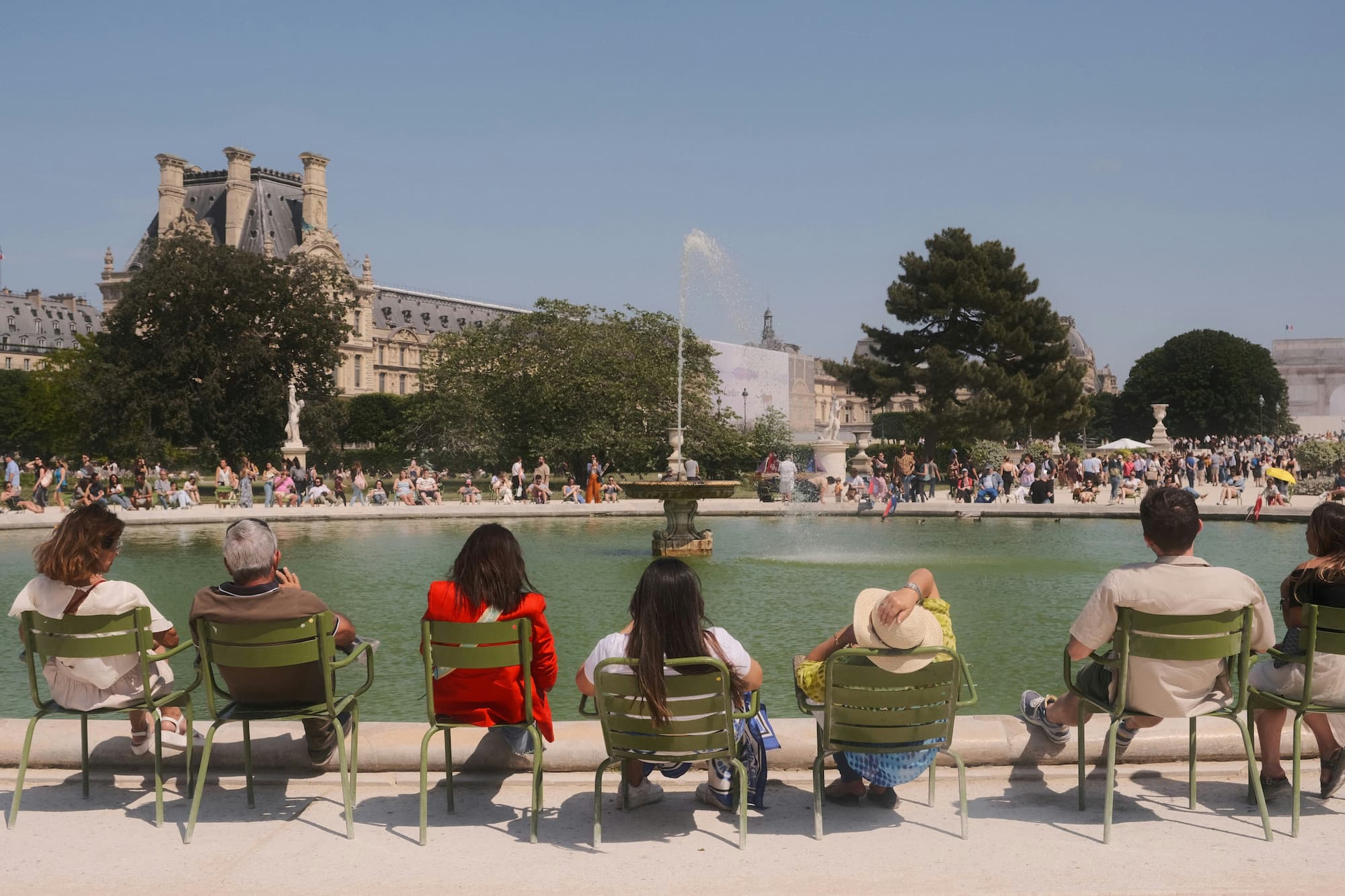
There are many reasons to travel to France, and these reasons can suit every traveler's interests. France is a country rich in history, culture, art, nature and gastronomy, and promises a different experience for everyone.
First, France is a country of culture and art. World-famous monuments such as the Louvre Museum, the Musée d'Orsay and the Eiffel Tower in Paris make France unique. If you are interested in art, history and architecture, France will amaze you in this regard.
Second, France has one of the most delicious cuisines in Europe. French cuisine is valued not only in terms of taste, but also as a cultural experience. With croissants, cheeses, wines, desserts and delicious lunch menus, France is an ideal choice for gastronomy lovers.
Third, France is very diverse in terms of natural beauty. The Mediterranean coast in the south, quiet and green villages in the north, and ski resorts and mountain landscapes in the Alps in the east, each create a choice for those who want to travel in a different way.
Fourthly, since France is part of the Schengen zone, it is possible to travel to other European countries without any problems. If you are traveling to France with a Schengen visa, you can also freely enter countries such as Germany, Belgium, Italy and Spain.
Finally, France is known for its romantic atmosphere and way of life. Drinking a cup of coffee in the sun on a street cafe bench, strolling along the Seine River or spending time in the medieval towns of France can create an unforgettable impression.
So, whether you are looking for relaxation, culture, nature, art or culinary experiences, France is a unique travel destination that can satisfy you in every respect.
What Documents Are Required for the Trip?
When applying for a France Schengen visa, you must submit the following documents:
- Original and a copy of the first page of your foreign passport
- Copies of your previous visas and entry-exit stamps, if applicable
- Copy of your ID card
- Employment certificate* and, if applicable, salary slip (for students, certificate from the educational institution) Bank account certificate and statement in your name (Detailed information on the amount is listed below)
- Copy of property certificates* and vehicle registration certificate in your name, if applicable
- Proof of your civil status* (If married, a copy of your marriage certificate, if you have children under 18, a copy of their birth certificates or, if your marriage has been dissolved, a copy of the document on the dissolution of the marriage)
- 2 biometric photos of you, 3.5x4.5 in size, with a white background
- Airline tickets you have booked for your trip
- Hotel you have booked for your trip reservations
- Travel insurance in accordance with Schengen rules that will fully cover your trip
- Application form filled out in English
- Printed version of the document issued by the system confirming the appointment
- If you are applying for a visa for a business trip, not a tourist one, then an official invitation letter related to that work, event or meeting
Documents marked with an “*” must be submitted to the embassy in English. If you want to get more information, you can click and read our blog.
What is considered during visa control?
During visa control at airports or border crossings in France and other Schengen countries, travelers may be asked to provide certain documents and information. Even if you have a valid French Schengen visa, border control may ask you for additional confirmation and ask you some questions. For this reason, the following issues should be taken into account:
- Your Passport and Visa Validity
Border control will first check whether the dates on your passport and visa sticker are correct. Your passport must be valid for at least 3 months after the expiry of your visa for France and the Schengen area.
- Onward and Return Tickets
Border control may ask you to present your onward and return tickets. This is necessary to prove that your trip is temporary.
- Hotel or accommodation reservation
A hotel reservation or invitation letter indicating the addresses where you will be staying in France or other Schengen countries may be required. If you are staying with friends or family, their registered address and contact details must also be provided.
- Financial security
You may be asked to provide proof of your ability to cover your expenses during your trip – bank statements, salary slips or information on the availability of cash. The average daily expenses for France are estimated to be between 65-120 euros.
- Insurance document
France has a minimum health insurance requirement of 30,000 euros for those traveling with a Schengen visa. It is important that this document is original and valid. This document may also be requested during control.
- Purpose of the trip
Border officers may ask you questions such as “Why did you come to France?”, “How long will your trip last?”, “Where will you stay the longest?”. It is important to answer these questions clearly and convincingly. It is recommended that you give answers that correspond to the purpose you stated in your documents.
- Previous Travel and Visa Violations
If you have any previous visa violations such as overstay, deportation, entry ban, etc., this may be reflected in the system and you may not be allowed to enter the country.
Where to Stay?
When planning a trip to France, the choice of where to stay directly affects the quality of your travel experience. There are a variety of accommodation options available, and these can vary depending on your budget, travel purpose, and comfort requirements. Here’s where to stay in France:
- Hotels and guesthouses
French hotels offer a wide range of options to suit all budgets. If you’re visiting a major city like Paris, you’ll find options ranging from basic 1-star hotels to 5-star luxury hotels. When choosing a hotel, you should consider location, proximity to the metro, and the services offered.
- Airbnb and guest houses
You can rent an apartment or room from a local host through the Airbnb platform. This option is especially suitable for those who want a more comfortable and homely stay. It’s ideal for family trips, long-term stays, and those who need access to a kitchen.
- Hostels
If you’re on a budget and you like a social atmosphere, hostels in France are a good choice. They’re especially suitable for young people, students, and solo travelers. Most often, shared rooms are available, but some hostels also offer private rooms.
- Student dormitories and study centers
If your trip to France is part of a study, exchange program, or summer course, you may be offered a temporary student dormitory or university residence. These options are mainly for those who come for short-term studies.
- Staying with relatives or acquaintances
If you have a family member, friend, or acquaintance living in France, it is also possible to stay with them. In this case, an invitation letter and proof of address must be submitted when applying for a visa.
City Transport System
In France, especially in Paris and other large cities, the transport system is developed, convenient and accessible to tourists. You can effectively use public transport to get around the city comfortably and affordably during your trip. Below is some basic information about city transport in France:
- Metro System
The most famous metro system in France is located in Paris. The Paris metro is one of the most extensive networks in the world and it is easy to reach any point in the city. The metro map is simply designed with a color and number system. The fare is around 2.10 euros.
If you are staying for a few days, it is more economical to use the “Paris Visite” or “Navigo” cards. With these cards, you can use the metro, buses and trams unlimitedly.
- Buses
Buses are an integral part of daily transport in French cities. The bus network in Paris and other large cities is extensive and provides access to most parts of the city as an alternative to the metro. The fare is the same as the metro and metro tickets are also valid on buses.
- Trams
Some French cities, such as Strasbourg, Bordeaux, Lyon, Marseille and Nantes, have extensive tram lines. Trams are considered both convenient and a great option for getting around the city. They are especially ideal for traveling in the historic parts of the city.
- RER and intercity trains
A high-speed train system called the RER (Regional Express Network) is used in and around Paris. These trains are essential for both intra-city travel and connections to the airport and nearby cities. RER tickets are priced at different rates than metro tickets.
- Bike rental and sightseeing
Cycling is very popular in France. In Paris, public bike services such as “Vélib’” allow you to move around the city in a comfortable and environmentally friendly way. The bike paths are well organized and attractive to tourists.
- Taxi and Ridesharing (Uber)
Taxi services are available in France, but they can be a bit expensive. Apps like Uber are widely used due to their affordable prices and convenient booking options.
Public transport in France is quite convenient for tourists. You can fully explore the city with metro, bus, tram and train services. Using a transport card or pass appropriate for the duration of your stay will save you money and ensure your comfort.
Mobile Apps
There are several useful mobile apps and websites to help you use public transport in France. These platforms allow you to plan your journeys within the city and between cities, buy tickets, track traffic in real time, and use other important features.
RATP – Covers the metro, RER trains, trams, and buses in Paris. You can plan your journeys, view maps, and get real-time information through the mobile app and the website www.ratp.fr.
SNCF Connect – Covers regional and national train routes throughout France, including the TGV, TER, and RER lines. You can buy train tickets, check schedules, and plan your trip in advance through this app and the website www.sncf-connect.com.
Citymapper – Designed for Paris and other major French cities. With this app, you can compare metro, bus, tram, bike, and taxi services together and choose a quick and convenient route. The web version is at www.citymapper.com/paris.
Moovit – Covers many French cities, including Paris. It provides real-time public transport schedules and route planning. The app also shows vehicle delays and stopovers. The website is www.moovitapp.com.
Vélib’ – a bicycle rental system in Paris and the surrounding area. You can find bike stations, manage rental and payment processes via the mobile app and the website www.velib-metropole.fr.
Île-de-France Mobilités – This app, which covers Paris and the Île-de-France region, allows you to plan public transport, buy tickets online and manage your metro cards. For more information, visit www.iledefrance-mobilites.fr.
Uber and Bolt – provide convenient taxi services in France. These apps allow you to find out the price in advance, track the driver and make payments.
It is recommended that you download these apps to your phone before you travel so that you can use public transport more conveniently and in a planned manner.
Recommended Restaurants and Food
When traveling to France, sampling the local cuisine is an essential part of understanding the country's culture. France is one of the world's richest and most famous culinary traditions, with both classic dishes and modern culinary delights.
For a fine dining experience in Paris, Michelin-starred restaurants such as Le Meurice, Guy Savoy and L'Ambroisie offer true culinary artistry. If you're looking for a more intimate and local atmosphere, the bistros and brasseries in neighborhoods such as Montmartre and the Marais are ideal. Here, you can sample classic French cold dishes such as foie gras, onion soup (soupe à l'oignon) and duck confit. Similarly, historic cafés in Paris such as Café de Flore and Les Deux Magots are ideal not only for dining but also for experiencing French culture.
In the southern regions of France, such as Nice and Marseille, seafood is a major part of the menu. The fish soup called bouillabaisse, especially prepared in Marseille, is one of the delicacies typical of this region. In the Provence region, dishes prepared with olive oil, fresh herbs and vegetables predominate. Dishes such as ratatouille and tapenade that you can find here are simple but very tasty.
The city of Lyon is considered the culinary capital of France. Here, traditional restaurants called "bouchon" serve local sausages, beef dishes and homemade desserts. Lyon's cuisine is more rustic and hearty, which indicates the rich culinary history of the city.
In the north of France, especially in the Normandy and Brittany regions, butter and apple-based dishes prevail. Crepes, desserts made with caramelized apples and fish dishes are widespread here. For wine lovers, restaurants located in the Bordeaux, Burgundy and Champagne regions are an ideal match for both local wines and dishes typical of those regions.
When choosing a restaurant while traveling in France, it is important to pay attention not only to the menu, but also to the region where it is located, customer reviews and the local atmosphere. Because sometimes in small, family-run restaurants you can find delicacies that you can't find in any famous restaurant. Therefore, it is recommended to enrich your dining experience with different cuisines and different regions when traveling.
Average Daily Expenses and Budget Planning
The average daily cost of living in France can vary depending on the city you choose, the type of accommodation you choose, the food you eat, and your overall lifestyle. While prices are higher in large, touristy cities like Paris, it is possible to keep costs lower in smaller towns and villages.
For an average budget traveler, daily costs in France can range from around €80–€150. This includes a night in a cheap hotel or hostel (around €40–€70), 2–3 meals a day in a café or bistro (around €25–€40), public transport (€5–€10 per day), and entrance fees to a few museums, castles, or tourist attractions. If you want to travel more economically, buying ready-made meals from supermarkets, using hostel kitchens, or participating in free tourist activities can significantly reduce your costs.
If you are planning a more relaxed and comfortable trip, then your daily budget can be 200–300 euros or more. This amount includes accommodation in 4 or 5 star hotels, lunch and dinner in restaurants, entrance to museums and galleries, convenient transportation by train or taxi, and souvenir shopping.
When planning your budget, keep in mind that in Paris and other large cities, museum admission is sometimes between 10–20 euros, but on the first Sunday of each month, entry to many state museums is free. If you will be using TGV high-speed trains for intercity travel, buying tickets in advance can reduce your costs. Metro and bus cards (for example, “Navigo” in Paris) also offer both affordable and convenient transportation.
When planning a trip to France, it is important to estimate your expenses in advance, set a budget by day, and set aside some money for unexpected expenses. This way, you can have a stress-free, more planned and comfortable trip.
Internet, SIM Card and eSIM Options
Internet connectivity and mobile communications are important when traveling in France. Buying a local SIM card is the most common and convenient option. Major operators such as Orange, SFR, Bouygues Telecom and Free Mobile offer various internet packages. SIM cards can be purchased in stores by presenting an ID card or passport. For short-term travel, you can also order online.
eSIM technology is also increasingly popular in France. If your phone supports eSIM, you can activate packages from different operators without using a physical SIM card. This allows for uninterrupted access to the internet while traveling and more convenient management. International eSIM providers such as Airalo, Truphone and GigSky operate in France.
Mobile internet prices vary depending on the operator and the package chosen. Typically, you will have to pay between 10 and 20 euros for 1-3 GB of internet per day. Free Wi-Fi hotspots are also available in city centers and tourist areas.
You can choose a physical SIM card or an eSIM according to the duration of your trip and your needs. In both cases, it is recommended to compare prices in advance and choose the most suitable package.
One of the most convenient ways to connect to the internet while traveling is eSIM technology. You can easily get online with a device that supports eSIM. If you want to know which eSIM operators you should choose and the price differences, we have provided a detailed comparison in this article.
Best Season to Travel
The best time to travel to France is usually spring and summer. In spring, the weather is mild, the gardens and parks are in bloom, and the city looks lively and colorful. From May to June, the crowds at tourist attractions are not yet too much, making travel more comfortable.
Summer (July and August) is the hottest and most popular travel season in France. During this time, the number of tourists increases, especially in Paris, Nice, and other popular cities are crowded. The weather in summer can be hot, sometimes very hot, especially in the southern regions. However, in the summer, sunny weather, outdoor festivals, and seaside recreation opportunities make travel more enjoyable.
In the autumn and winter, the weather is cooler, sometimes rainy and windy. However, during these seasons, there are fewer tourists, and hotel and flight prices are more affordable. Especially in the autumn months, Paris and other cities offer colorful scenery.
It is possible to visit France at different times of the year, depending on your travel purpose, convenience, and budget. If you want to avoid crowds and travel at a more affordable price, spring and fall are good choices, while summer offers more outdoor activities and seaside opportunities.



